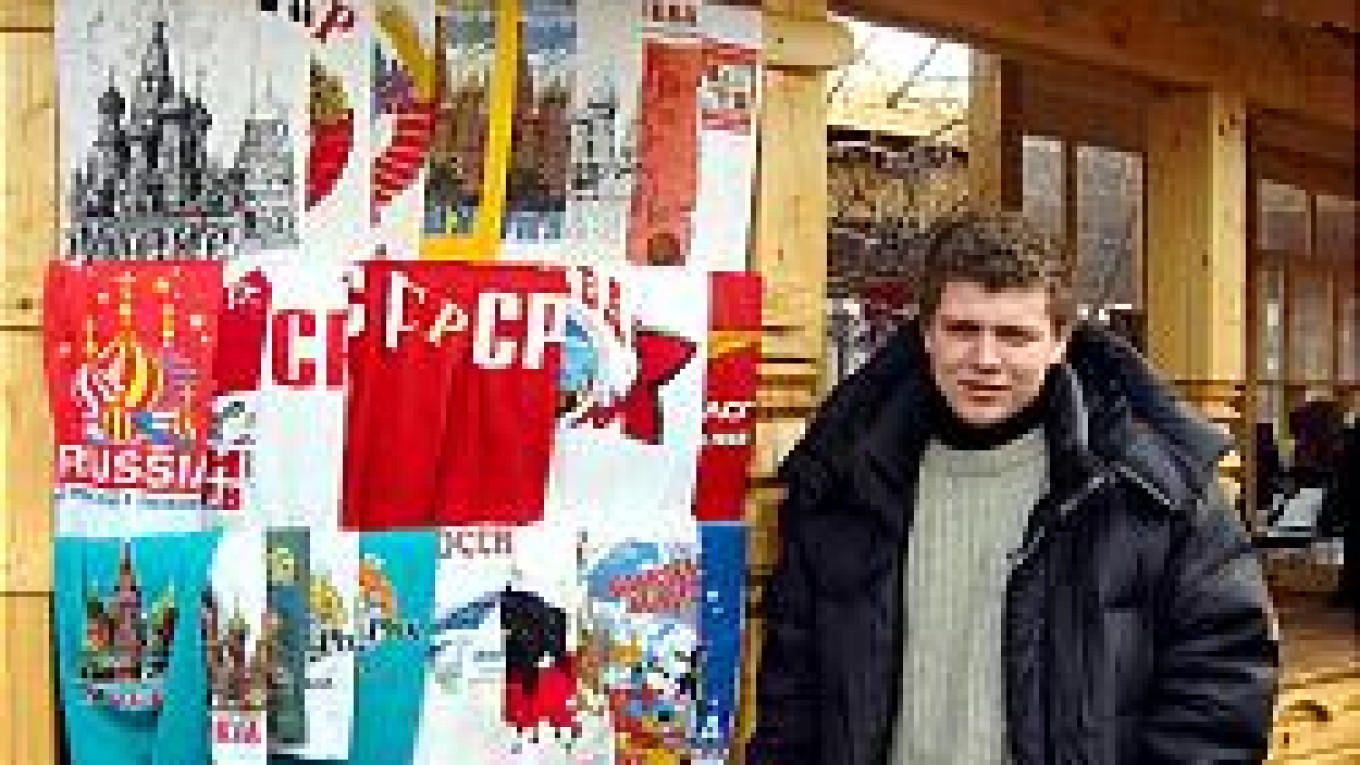What a disappointment I am.
Tajikistan has no T-shirts -- not with anything printed on them, that is. Nor does it have picture postcards, keychains, noddy-head dog figurines or plaques of aromatic wood inscribed with jokes. This thorough dearth of tourist junk left an empty place in my heart. That's a touchy admission for someone who doesn't consider himself a frivolous person.
If I spend more than a couple of days somewhere, for work or for pleasure, I fancy that I'm starting to see the big picture, and I write my friends long letters full of possibly correct observations about local culture and politics and economics. They read them attentively, but I sense them sulking: My buddy went to Tajikistan and all he brought me was this lousy essay.
They want T-shirts -- and they're right. I want them, too.
To academics and freelance philosophers who theorize about the difficulty of achieving authenticity in the postmodern world, the souvenir T-shirt is seen as the ultimate defilement. To wear one means you had the money to see the sights of the world, but not enough wit to do anything other than stare vacantly at them and then wander off in search of a cheeseburger. To them, I say "No way."
Actually, a superficially simple T-shirt is a complex weave of symbols and implications.
Travelers hanker for a genuine, unique ethnic experience, but that's increasingly elusive in a globalized world where you can get good Chinese food in Iceland and Icelandic food in Tbilisi. A T-shirt, however, is inarguably authentic: Fat chance that an "I [Heart] Slovenia" T-shirt would have been purchased anywhere except in that very country.
True, you could also purchase an equally authentic Slovenian peasant outfit, but you're unlikely to wear that to the supermarket back home, and that cancels one of the main pleasures of travel: bragging that you've been somewhere exotic.
Some tourists go for paintings by local artists. Then they find that the bright colors that are so good in the Bitola art market clash with every piece of decor at home or that an insufferable house guest points out that the painting's chiaroscuro is poorly executed. Not a problem with T-shirts, which are supposed to be garish and crude.
But that outwardly tawdry format can hold a complex text, such as one I bought in Yerevan: a view of Mount Ararat and the inscription, "I was in Armenia." Who is the "I" here -- the person wearing the shirt expressing guileless delight at having been in this out-of-the-way place, or the mountain itself, proclaiming a bitter reminder that it once was in Armenia but then was absorbed into Turkey?
T-shirts are such a powerful statement of how a country sees itself and wants to be seen that the buyer has to be careful to not be deluded. In New Zealand, the shops are so loaded with kiwi-motif shirts that once I caved in and bought one, I forgot that I hadn't actually seen any of those reclusive birds in real life. And so common are shirts featuring the Maori name of the country, Aotearoa, you may forget that present-day Maoris suffer marginalization.
Berlin shops stock an unsettling shirt, emblazoned with a reproduction of the "You are leaving the American zone" sign that used to stand at Checkpoint Charlie. What is a person wearing one of these saying -- that the Wall has been down so long that we can reduce its terrible specter to a piece of tourist trex, or that he's a shallow dork pretending to have had Cold War adventures? My pals and I ponder this when we wear ours.
Maybe worse are the T-shirts on sale in Mostar, Bosnia-Herzegovina, emblazoned with images of the town's elegant, namesake bridge -- which was blasted into gravel by artillery in 1994. Or maybe it's a sign of optimism; plans are under way to reconstruct the bridge, so the T-shirts might be displaying what can be seen when better times come.
A few hours up the road, in Sarajevo, some T-shirt cheer is also apparent. They don't have jokes or pictures, just the name "Bosnia-Herzegovina," but that's an indication of new confidence in a country that once was on the verge of disintegration.
That's what I like about T-shirts, ultimately: They're a statement by people that their countries are proud and that visitors should come see them. Tajikistan hasn't hit that level of confidence yet, despite its thrilling mountains and dramatic vistas.
In Tajikistan, then, instead of killing time by shopping for goodies, I filled those hours by reading a book about the region's long and complicated history. The book gave special attention to Ismail Somoni, a renowned tribal leader from 1,100 years ago, after whom the country's currency is named.
The book's drawings of him showed a man with a thin face, piercing eyes and a mouth set in a slight smile both determined and calculating. A dramatic visage. He'd look great on a T-shirt.
A Message from The Moscow Times:
Dear readers,
We are facing unprecedented challenges. Russia's Prosecutor General's Office has designated The Moscow Times as an "undesirable" organization, criminalizing our work and putting our staff at risk of prosecution. This follows our earlier unjust labeling as a "foreign agent."
These actions are direct attempts to silence independent journalism in Russia. The authorities claim our work "discredits the decisions of the Russian leadership." We see things differently: we strive to provide accurate, unbiased reporting on Russia.
We, the journalists of The Moscow Times, refuse to be silenced. But to continue our work, we need your help.
Your support, no matter how small, makes a world of difference. If you can, please support us monthly starting from just $2. It's quick to set up, and every contribution makes a significant impact.
By supporting The Moscow Times, you're defending open, independent journalism in the face of repression. Thank you for standing with us.
Remind me later.


